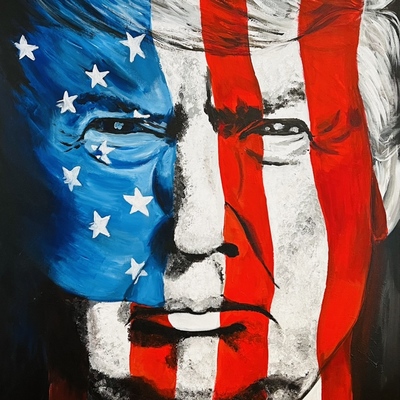
Trump Orders Diplomats to Fight EU Digital Services Act as Compliance Costs Reach $97 Billion
Trump's Digital Iron Curtain: How the White House Battle Against EU Tech Rules Reshapes Global Markets
BRUSSELS — The elegant corridors of Europe's regulatory capital fell silent on Monday as diplomats studied an extraordinary document. The cable, signed by U.S. Secretary of State Marco Rubio on August 4, contained no pleasantries or diplomatic niceties — only marching orders for a coordinated assault on the European Union's landmark Digital Services Act.
"Every U.S. embassy across the bloc has been mobilized," confided a senior European Commission official who requested anonymity given the sensitive nature of the diplomatic standoff. "American diplomats aren't just raising concerns; they're deploying a full-court press against what they call 'European censorship' — turning diplomatic missions into lobbying outposts."
The directive marks the most aggressive phase yet in a widening transatlantic rift over who gets to write the rulebook for the digital age. At stake: potentially $97.6 billion in annual compliance costs for American tech giants, and two fundamentally opposing visions of internet governance.

The Battle Lines of Digital Sovereignty
Inside the State Department's seventh-floor executive suite, officials have framed their campaign as a defense of America's free speech tradition. The diplomatic cable dispatched last week instructs embassies to press European governments to narrow the DSA's definition of illegal content and oppose the EU's system of "trusted flaggers" designated to identify harmful material.
"When Brussels talks about 'illegal content,' what they really mean is speech they don't like," observed a tech policy expert close to the administration. "They've created a framework that lets them silence political and religious discussion under the guise of fighting misinformation."
The Digital Services Act, fully implemented since late 2023, requires large platforms to rapidly address illegal content, implement transparent algorithms, and maintain robust risk-management systems. Non-compliance triggers fines up to 6% of global turnover and supervisory fees set at 0.05% of global net income — financial penalties that have American executives and shareholders alike growing increasingly alarmed.
"This isn't regulation; it's a shakedown," said a senior executive at one of America's largest social media companies. "Europeans want the benefits of American innovation while dictating how our products operate and siphoning billions in fees and fines."
Financial Battlegrounds and Market Tremors
The financial impact has become impossible for investors to ignore. A recent Computer & Communications Industry Association study quantifies the DSA's drag on U.S. tech firms at $38.9 billion in direct compliance costs, potentially reaching $97.6 billion when factoring in revenue impacts and penalties.
On Wall Street, algorithmic traders have already begun programming European regulatory announcements as risk triggers, with some hedge funds developing specialized "regulatory arbitrage" strategies to capitalize on the widening compliance gap between U.S. and European digital markets.
"We're seeing a structural shift in how digital platform stocks are valued," explained Maria Katsenelson, chief investment strategist at a major asset management firm. "Companies heavily exposed to European markets now carry a regulatory discount of 7-12% compared to those with predominantly American or Asian footprints."
The market dynamics have even sparked a wave of what industry insiders call "compliance tech" startups — firms developing AI-powered content moderation, algorithmic transparency tools, and regulatory reporting platforms specifically tailored to DSA requirements.
Courtroom Dramas and Legal Strategies
The diplomatic offensive comes as legal challenges mount. In June, Meta and TikTok jointly appealed their DSA supervisory fees at the EU's General Court, arguing the Commission used flawed methodologies to calculate user numbers and improperly applied the 0.05% assessment against global rather than European income.
"These companies are fighting a two-front war," noted a Brussels-based attorney specializing in digital regulation. "They're challenging specific provisions in court while their government pushes for diplomatic solutions. It's unprecedented in scope and coordination."
European officials, however, remain unmoved. "The DSA is not negotiable in trade talks," declared the EU's Digital Commissioner in a pointed response to U.S. overtures. "This legislation protects European citizens while preserving the open internet. We reject any suggestion of discriminatory intent."
The Ideological Divide: Two Models of Digital Governance
Behind the technical disputes lies a philosophical chasm. The European regulatory approach treats digital platforms as public utilities requiring oversight to protect democracy and human dignity. The American model, championed by the Trump administration, views them primarily as private enterprises that should operate with minimal government interference.
"What we're witnessing is a systems clash," explained Dr. Elena Horvath, director of the Digital Economy Research Institute. "Europe is asserting its digital sovereignty — the right to regulate online ecosystems according to European values. America sees this as both an economic threat and an ideological challenge to its conception of free expression."
The divergence has already begun reshaping how global tech firms structure their operations. Multiple platforms now maintain separate content moderation teams, product development tracks, and even algorithmic systems for European versus American markets — a costly but necessary adaptation to the regulatory schism.
Investment Implications: Following the Money
For professional investors tracking the dispute, several strategic patterns have emerged:
European compliance-tech firms have seen valuations surge 46% since January as demand for their specialized services grows. Companies like Netherlands-based ContentSafe and Germany's RegTech Solutions have secured nine-figure funding rounds in recent months.
Smaller European digital platforms with "DSA-native" architectures are outperforming regional benchmarks by leveraging their compliance advantage against larger American competitors struggling to retrofit existing systems.
M&A activity has accelerated as larger firms acquire compliant "DSA-ready" startups to fast-track market entry, with transaction volumes in the sector up 28% year-over-year.
"We're advising clients to view the DSA not as a temporary regulatory skirmish but as a tectonic shift in digital governance," said Nicolas Berger, managing partner at a leading European venture capital firm. "The firms that will thrive are those building compliance capabilities into their DNA rather than treating them as a bolt-on cost center."
The Path Forward: Predictions and Positioning
Despite the administration's diplomatic offensive, most analysts expect the EU to stand firm. Brussels has invested too much political capital in positioning itself as the global standard-setter for digital regulation to back down now.
"Smart money is betting on increased fragmentation," said a veteran technology analyst. "We'll see continued divergence between U.S. and EU digital regulation, creating friction but also unique investment opportunities in companies that bridge the compliance gap."
For portfolio managers navigating this environment, several strategies appear promising:
- Increasing allocation to compliance-tech firms and regulatory technology ETFs positioned to benefit from mandated risk-management frameworks
- Monitoring court outcomes in the Meta/TikTok fee appeals, which could provide short-term relief for platform equities if successful
- Identifying European digital platforms with native DSA expertise that may become attractive acquisition targets
"The next six months will be critical," advised Katsenelson. "If U.S. diplomatic pressure fails to move Brussels, expect American platforms to further compartmentalize their operations, potentially spinning off European divisions as separately capitalized entities to isolate regulatory risk."
Meanwhile, the clash represents more than a business challenge — it's a contest for the future of the internet itself. As one EU official put it: "This isn't just about content moderation or compliance costs. It's about whether democratic governments or private corporations get to set the rules for our digital public square."
For investors and citizens alike, the stakes couldn't be higher.
Disclaimer: This analysis is based on current market data and established economic indicators. Past performance does not guarantee future results. Readers should consult financial advisors for personalized investment guidance.